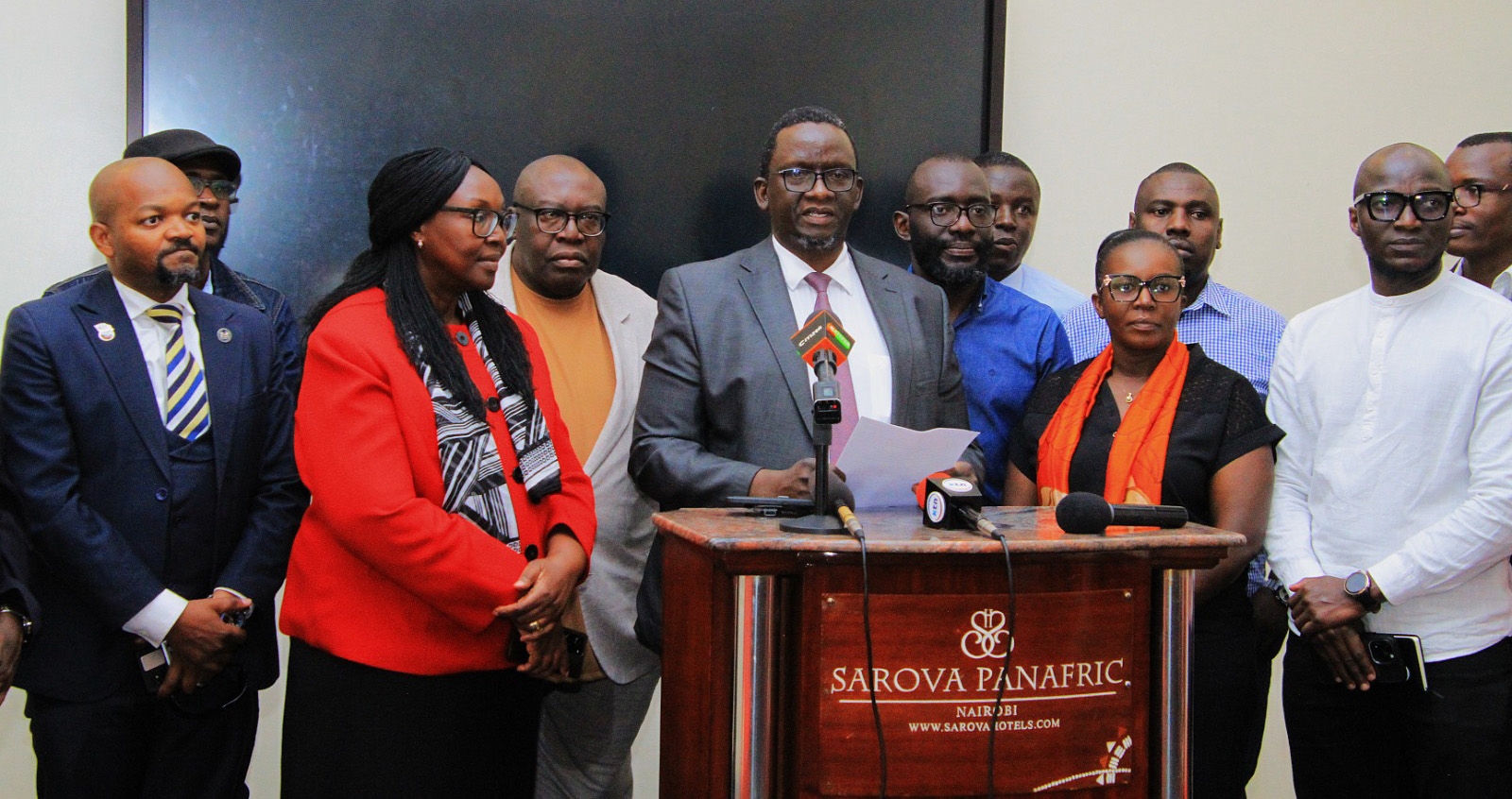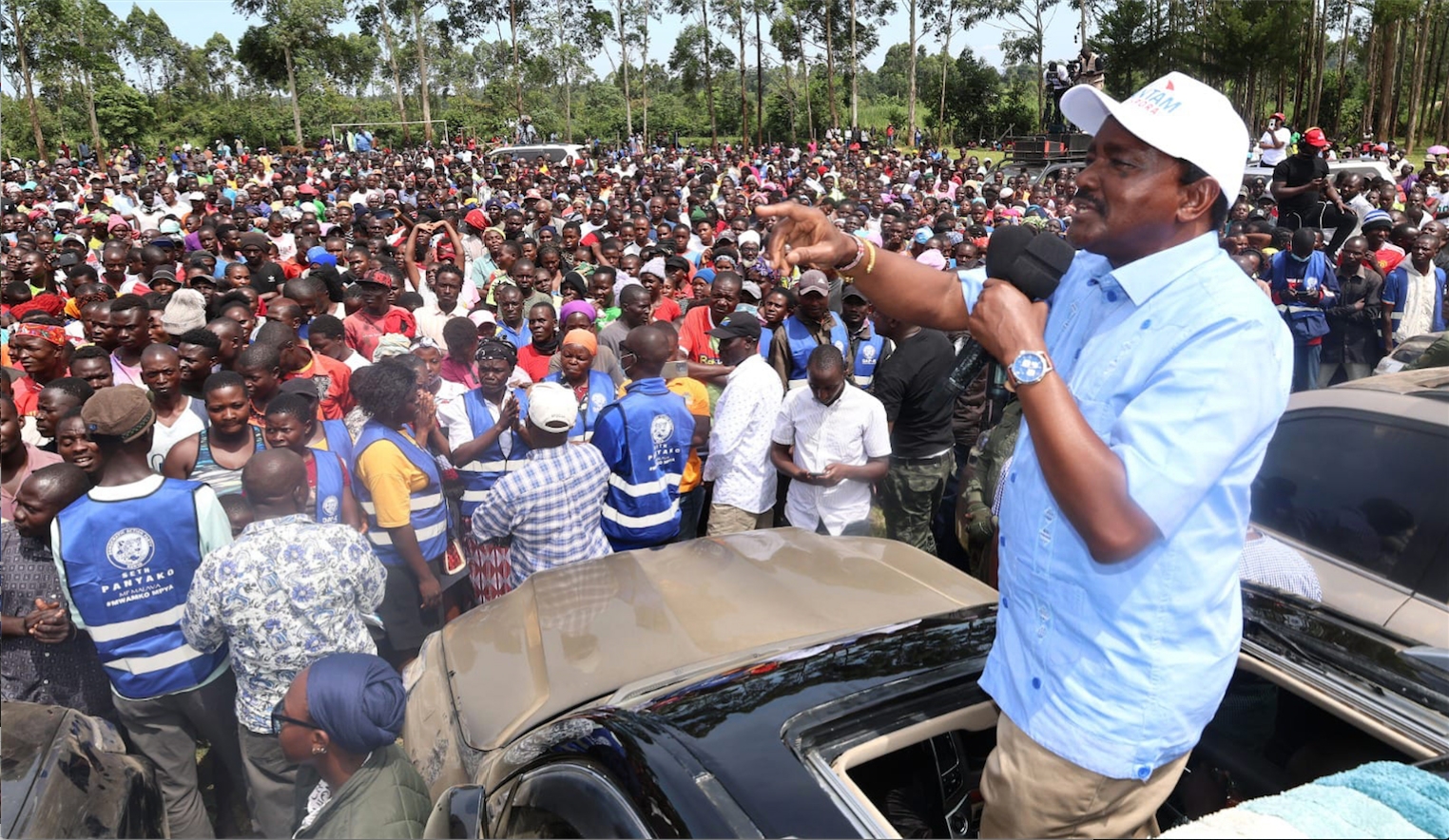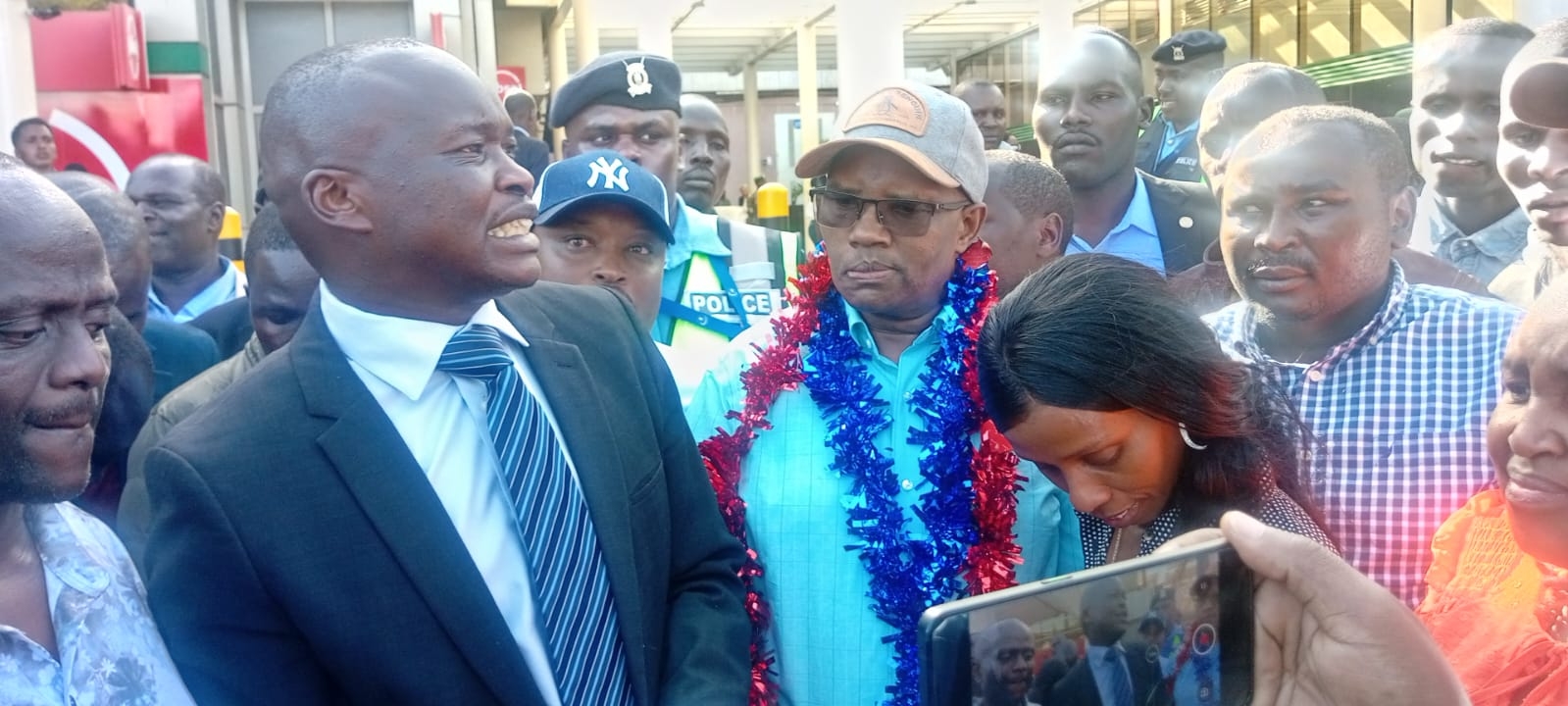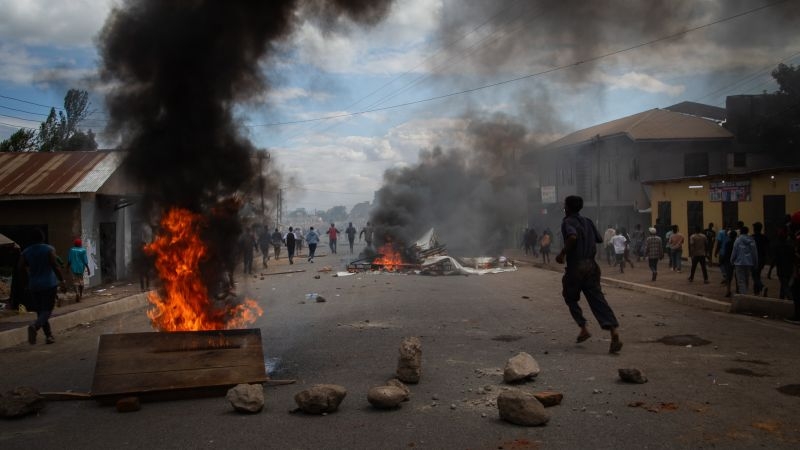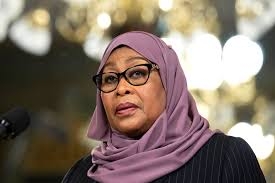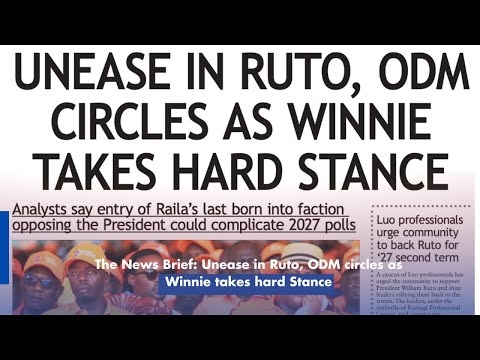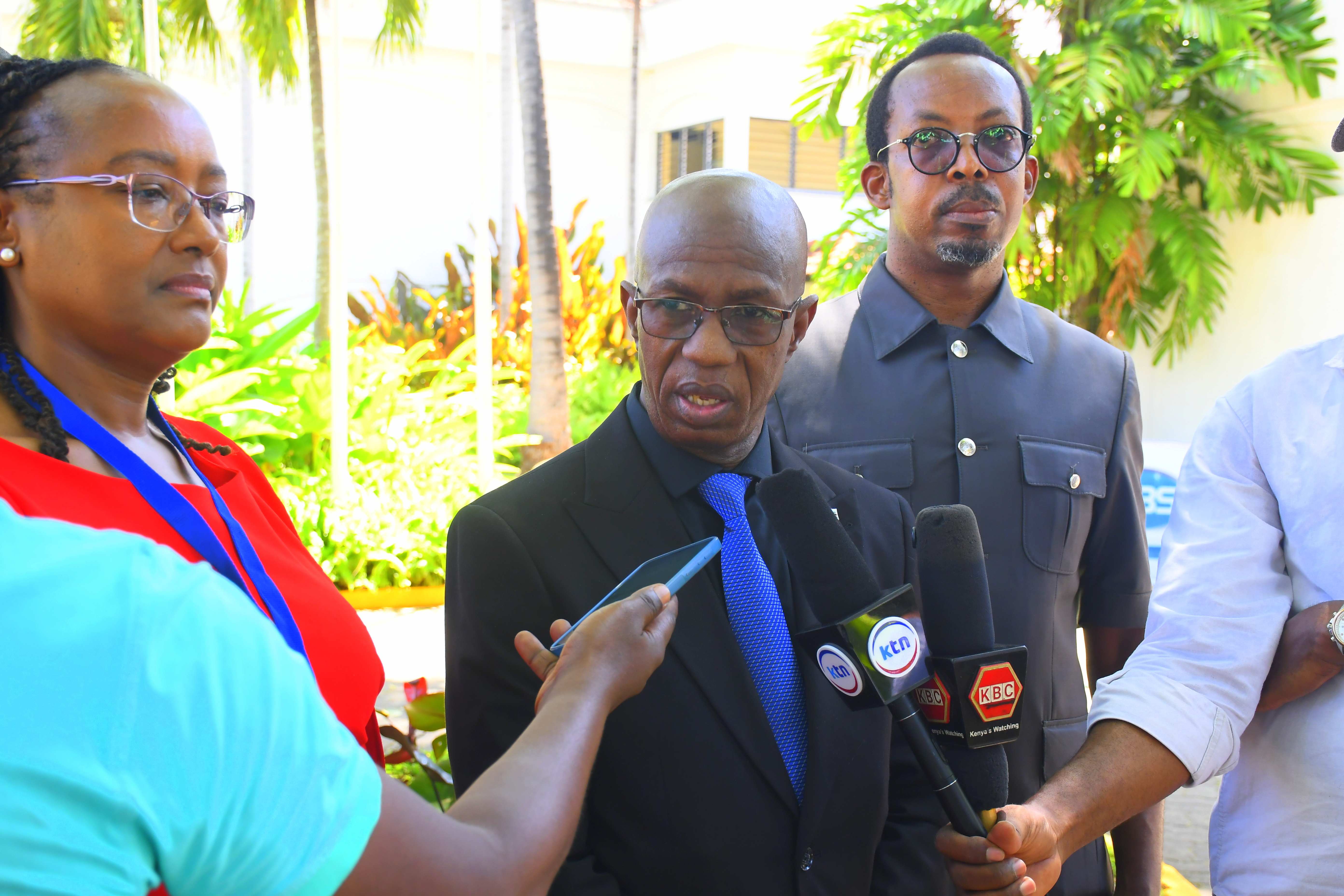 Arso president
Botsile Kebapetse in Mombasa on Monday / BRIAN OTIENO
Arso president
Botsile Kebapetse in Mombasa on Monday / BRIAN OTIENOFree movement of
people across Africa is key to ensuring intra-African trade is increased, the
Africa Organization for Standardization (Arso) has said.
Arso president Botsile Kebapetse lamented that Africa is not trading among itself as much as it
trades with other continents and linked this to the lack of free movement among
the African countries.
“Most of African countries
are exporting goods outside Africa as opposed to exporting and importing goods
amongst ourselves,” the Botswana national said.
Speaking at the 73rd
council meeting and 16th Arso champions meeting in Mombasa on Monday, Kebapetse
said African countries must make it easy for themselves to trade amongst each
other.
Kenya Bureau of
Standards managing director Esther Ngari said it is important to create systems
that will enable trade within Africa.
She noted that one
way of supporting the African Continental Free Trade Area (AfCFTA) is through
harmonization of standards and to eliminate trade barriers that have existed
over a long period of time.
The AfCFTA
is a free trade agreement signed in 2018 to create a single continental
market for goods and services across 55 African Union member states.
Its main objective
is to boost intra-Africa trade by eliminating tariffs and non-tariff barriers,
while also promoting investment, industrialization, and economic
integration.
Kebapetse said AfFCTA
does not only talk about goods but also free movement of people.
“Is it going to be
easy for us to achieve? Remember, for you to engage in a business, you need a
business meeting. You can’t always engage virtually. You also need to be
looking at the person you are dealing with especially when you are starting
your business,” Kebapetse said.
He said AfFCTA will
not be achieved only through standardization but also through the pillars that
need to facilitate standardization.
“And that is about
people moving freely within Africa. It is about people being able to engage
easily. Once that is done, it will make things easier,” the Arso president
said.
The AfFCTA is a
major step towards better standardization because it is an effector of unity.
Kebapetse said they
are keen on uniting African countries under one banner and standard like in
other continents like the European Union, which has one standard for all
European countries.
“That is why it’s important for us to come
together to make sure we are able to facilitate the implementation of the
AfCFTA,” he said.
He noted that their
mission is to encourage and facilitate intra-trading in Africa to ensure that
Africa enjoys the riches and wealth of Africa are enjoyed by Africans within
Africa.
“That can only take
place and be achieved effectively through harmonization of standards because
with harmonization of standards we will be taking care of and reducing
technical barriers to trade,” the Arso president said.
Importing
countries’ first concern is quality of the products they import, he said.
Arso secretary
general Hermogene Nsengimana said the council
will be approving 123 more harmonized standards during the meeting in Mombasa.
The new harmonized standards will add to the
already existing 2,440 harmonized standards in Africa in different sectors,
including agro-processing, automotive, pharmaceuticals, transport and
communication, textile and leather, among others.
“We will also be looking at how we implement our
quality mark for the continent where we will see if you conform to the
harmonized standard so that your product can be sold across Africa without
being retested,” Nsengimana said.
Kebapetse said the
2,440 harmonized standards for the continent accounts for 25 per cent of AfFCTA
trade tariffs.
“We still have more
standards to harmonize for us to be able to achieve the trade lines. We still
have 75 per cent left and that is a tall order for African states,” the Arso
president said.
“But is it easy for
us to travel across African countries as Africans? Before we talk of standards,
are we united as a continent at political levels, our customs and immigration?
All those political matters have to be dealt with so that they can facilitate
everybody that is non-political,” the president said.
Although he acknowledged that there is a lot of progress, there is still a lot to be done in terms of making sure that whenever we want to meet and do our work.....
INSTANT ANALYSIS:
Arso was formed in 1977 with the principal mandate to harmonize African standards, conformity assessment and procedures in order to reduce technical barriers to trade and promote intra-African international trade as well as enhance the industrialization of Africa.









